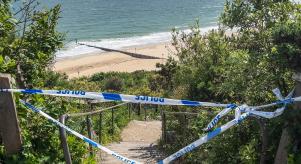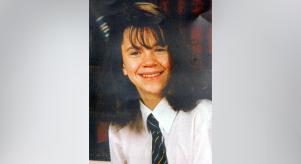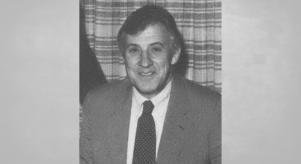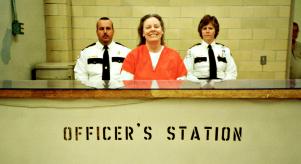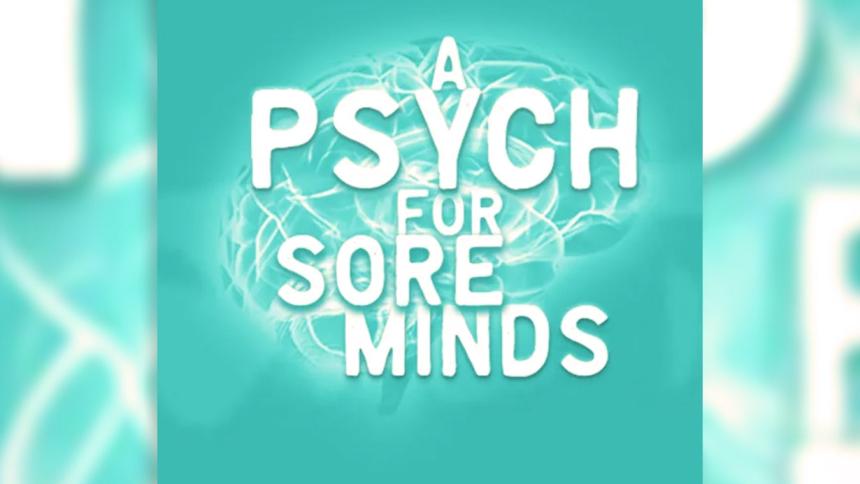
Meet the podcasters: A Psych For Sore Minds
Crime+Investigation is proud to partner with CrimeCon UK, a new True Crime event, coming to the UK in September 2021. As part of the show, CrimeCon has gathered together leading true crime podcasters and Youtubers in Podcast Row. Here fans will be able to meet the stars of their favourite shows in person.
A Psych for Sore Minds
Ahead of the event, Crime+Investigation is doing a series of Q&As with some of the podcasters and YouTubers who will be attending CrimeCon in September. In the sixth instalment we spoke with Consultant Forensic Psychiatrist Dr Sohom Das, who runs A Psych for Sore Minds, a YouTube channel with a twist.
1. How would you describe A Psych for Sore Minds in one sentence?
A YouTube channel hosted by a professional Consultant Forensic Psychiatrist who uses his professional expertise to dissect the crossover between violence, offending and mental illness.
2. What makes your channel stand out from the crowd?
As a Forensic Psychiatrist, I assess mentally disordered offenders for a living in courts, prisons and secure psychiatric units (such as Broadmoor Hospital), reserved for the most dangerous psychiatric patients. Whereas other true crime podcasts focus on details of the cases, mine is more about the psychoanalysis of the individual perpetrators. Another USP is that I talk about my real-life cases, anonymising the subjects out of respect for patient confidentiality and also for the victims and their families.
My videos tend to be quite jovial, surreal, funny and light-hearted; which is a difficult line to tread, given the very dark topic material.
3. What first sparked your interest in true crime?
I’ve always been fascinated with violence and crime since listening to gangsta rap and watching gangster films as a youngster. The picture that groups like Naughty by Nature, NWA and Snoop Doggy Dogg painted in their music was so powerful and audacious. It was like a secret guilty pleasure; forbidden for me growing up in quite a conservative and strict environment.
4. What's your favourite part of YouTubing?
As I’m always rushed for time with my job and family etc, actually making my videos tends to be a panicked and rushed process! However, for me, it’s all worth it when I get to see the comments on YouTube and respond to them. I get a kick out of connecting with my audience.
5. What do you think your fascination with true crime has taught you in your personal life?
Making my YouTube channel has taught me how much misinformation is out there. Many so-called professionals who actually lack very basic analytical skills.
In my professional life, from having assessed people who have committed horrendous offences (including killing their own family members), I’ve learned that people are very unpredictable. Many of my patients can be overtly hostile and dangerous (for example with Antisocial Personality Disorder). However, a few of them are very timid and unassuming and their presentation in front of me seems very disconnected to the extreme acts of violence they have committed. This is usually due to florid mental illness and they were not in control of their actions at the time. These patients have taught me that you can never judge a book by its cover.
6. What's your favourite video and why?
I really enjoy making my AMA (Ask Me Anything) videos. I answer questions from my viewers. These episodes are fun to make because they are short and snappy and I can talk more about my own private life and hence let my personality shine through.
I also feel like I’m giving something back to my very patient viewers by answering their questions directly.
7. Which case that you've featured on the podcast keeps you awake at night?
My heart is way too calloused to ever lose any sleep! However, I’ve been most fascinated about the case of Andrea Yates; a nurse who suffered post-partum psychosis and killed all of her five children in Houston in 2001.
Not only was this extremely harrowing but I feel a connection to her case as I myself have assessed similar patients. Also, as I explain in depth in my episode, the medico-legal process was tainted by the expert evidence of a fellow Forensic Psychiatrist. As I frequently give evidence in criminal trials, this strikes close to home for me. It annoyed and frustrated me to learn about the very basic mistakes this renowned colleague made – it led to Andrea being charged for murder, until she had a retrial years later, and was then transferred for treatment in a secure psychiatric unit, where she should have been sent in the first place.
8. What do you now know about running a YouTube channel that you wish you knew when you started?
How long it takes! I am extremely technologically incompetent and have fallen over many hurdles - from not even realising that my original internet speed was too weak to upload videos, to literally taking months to figure out how my VLR camera works. I shy away from technical problems and they always seem to find me.
9. What's one cold case you would like to see solved?
I’m afraid I don’t have an answer for this. The cases I focus on are usually about the psychoanalysis and potential psychiatric diagnoses of the perpetrator; therefore, all of them have been solved. I’m all about explaining why somebody has committed violence (i.e. exploring their background personality factors and previous traumatic events), as opposed to actually solving cases.
10. What reforms are needed in the world of policing and the judicial system?
From my personal experiences working as a Forensic Psychiatrist, it is very frustrating when judges occasionally completely ignore my expert evidence; usually because they have already made up their mind about a case. For example, there have been a few times in my career where I have arranged a Mental Health Act assessment to section somebody to a secure unit because they are clearly psychotic. But the judge doesn’t seem to want to look past the troubling nature of their crime and has sentenced them to prison instead. Although there are psychiatric services in prison (and I have worked for some of these myself), they are nowhere near as effective as inside secure units. It seems almost cruel for the perpetrator (despite the offence they may have committed) to be unnecessarily suffering from severe mental illness and not receiving the treatment they need.
11. What's your favourite true crime podcast, documentary or TV series and why?
I am a big fan of Shaun Atwood’s YouTube channel. He has a fascinating story; from being a millionaire stockbroker to becoming an ecstasy kingpin in Arizona to being arrested and spending several years in the American prison system, including notorious high secure prisons, to now making his own true crime content. He is very prolific, releasing several solid, detailed, entertaining videos every week, including in-depth interviews with a range of guests. I have also been a guest on his podcast a couple of times and he’s very approachable and encouraging.
12. If you didn’t have a true crime YouTube channel, what type of YouTube channel or podcast would you have?
I think with my natural personality and my inquisitive nature, it would probably be a comedy podcast. I’m a huge fan of stand-up comedy. I would try to interview professional comedians; I’d ask them about their earlier lives and their journeys and what inspired their careers and their material. I would also elicit also any relevant psychiatric issues, including how the lifestyle of being a professional stand-up comic affects one’s outlook, personality and mental health.
13. What are you most looking forward to at CrimeCon?
First of all, meeting the true crime community face-to-face. I’m a relatively new member and very interested in meeting my brethren. I’m also keen on speaking to some of the true crime podcasters that I’ve been listening to recently; putting a face to their voice.
